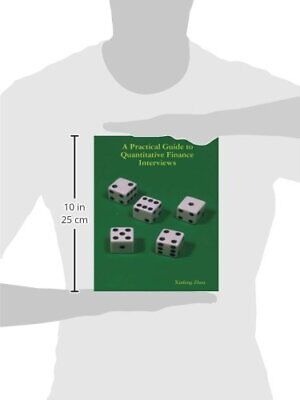Introduction: Cracking the Code of the Quant Interview
Embarking on the journey to become a quantitative analyst, or "quant," means preparing for one of the most intellectually demanding interview processes in any industry. These interviews are notorious for their rigor, designed to sift through exceptional talent to find individuals capable of navigating the complex intersection of mathematics, finance, and technology. Cracking this code requires more than just academic brilliance; it demands strategic preparation and resilience.
More Than Math: Understanding the Rigor of Quant Finance Interviews
Quantitative finance interviews delve far deeper than textbook problems. They are meticulously crafted assessments designed to probe your analytical acuity, problem-solving agility, computational fluency, and capacity to think critically under intense pressure. Recruiters aren't merely verifying your knowledge; they are evaluating your potential to generate novel solutions and contribute meaningfully within high-stakes financial environments. Expect to be stretched intellectually.

Why Preparation Isn't Just Recommended, It's Essential
Walking into a quant interview unprepared is akin to navigating a labyrinth blindfolded. The breadth and depth of topics covered, combined with the speed and intensity of the questioning, necessitate dedicated, structured preparation. Success rarely happens by chance; it is almost invariably the result of diligent study, extensive practice, and a clear understanding of what interviewers are seeking. Your innate talent needs to be honed through rigorous preparation.
Your Roadmap to Navigating the Quantitative Gauntlet
This guide serves as your practical roadmap. We will dissect the typical interview structure, illuminate the core technical competencies required, explore common question types, provide a strategic preparation playbook, and offer actionable tips for navigating the interview day itself. Consider this your essential briefing before entering the quantitative gauntlet.
Decoding the Quant Role: What Recruiters Are Really Looking For
Understanding the objectives behind the interview process is crucial. Firms aren't just hiring mathematicians or programmers; they are searching for a unique blend of skills tailored to specific quantitative roles.
Beyond the Algorithm: The Essence of a Quantitative Analyst
At its heart, a quant develops and implements mathematical models to price financial instruments, manage risk, identify trading opportunities, or optimize portfolios. Recruiters seek individuals who possess not only profound technical expertise but also sharp intuition, intellectual curiosity, creativity in problem-solving, and the ability to communicate complex ideas effectively. They want thinkers who can bridge theoretical models with practical market realities.
Why the Bar is Set So High: Assessing Critical Thinking Under Pressure
The financial markets are dynamic and unforgiving. Quants must make critical decisions, often with incomplete information and under tight time constraints, where errors can have significant financial repercussions. Interviews simulate this pressure to assess your ability to think clearly, logically, and creatively when the stakes are high. They are testing your intellectual horsepower and mental fortitude.
Anatomy of a Quant Interview: Stages You'll Encounter
The quant interview process is typically multi-staged, progressively filtering candidates based on technical proficiency and suitability. Be prepared for a marathon, not a sprint.
The Initial Screening: Getting Past the Resume Filter
Your journey begins with your resume and application. Recruiters look for strong academic credentials in quantitative disciplines (e.g., mathematics, physics, statistics, computer science, engineering), relevant project work or internships, and demonstrable programming skills. Ensure your resume clearly highlights these qualifications concisely and effectively. This is your first hurdle.
Phone Interviews: Your First Technical Deep Dive
Successful applicants typically face one or more technical phone screens. These interviews often involve questions covering probability, basic mathematics, statistics, and coding fundamentals. Interviewers assess your core knowledge and communication skills, determining if you possess the baseline competency for more intensive rounds. Expect coding directly into shared editors or verbal explanations of complex concepts.
The On-Site Gauntlet (or Virtual Marathon): Multiple Rounds, Multiple Tests
Candidates progressing past phone screens are usually invited for on-site interviews (or increasingly, intensive virtual equivalents). This stage typically involves multiple back-to-back interviews lasting several hours or even a full day. Each interview might focus on different areas – math, probability, coding, finance – and be conducted by different members of the team, from junior quants to senior managing directors.
Superdays Decoded: Intense Back-to-Back Evaluations
Some firms utilize a "Superday" format, compressing numerous interviews into a single, highly concentrated day. This format tests not only your technical skills but also your stamina and ability to perform consistently under sustained pressure. Expect a rapid succession of technical grilling, brain teasers, and behavioral assessments.
The Technical Foundation: Mastering the Core Pillars
Success hinges on a deep and fluent understanding of several core technical domains. Superficial knowledge will not suffice.
Calculus & Linear Algebra Revisited: The Mathematical Bedrock
A solid grasp of single and multivariate calculus (differentiation, integration, optimization, differential equations) and linear algebra (matrix operations, vector spaces, eigenvalues/eigenvectors) is fundamental. These concepts underpin many financial models and algorithms. Be ready to apply them, not just recite formulas.
Probability Prowess: Thinking Stochastically is Non-Negotiable
Probability theory is the language of uncertainty in finance. Mastery of foundational concepts (conditional probability, Bayes' theorem, distributions, expected value, variance) and more advanced topics (random variables, stochastic processes, limit theorems) is absolutely critical. Expect questions ranging from classic puzzles to scenario-based problems.
Statistics & Econometrics Essentials: From Theory to Application
Understanding statistical inference (hypothesis testing, confidence intervals), regression analysis (linear models, time series analysis), and basic econometrics is vital for modeling financial data, testing strategies, and quantifying risk. Be prepared to discuss model assumptions, interpretations, and potential pitfalls.
Coding Command: Fluency in Python and/or C++ is Key
Strong programming skills are indispensable. Proficiency in Python (with libraries like NumPy, Pandas, SciPy, Scikit-learn) and/or C++ (often preferred for high-performance roles) is standard. Expect to write clean, efficient code to solve problems involving algorithms, data structures, and numerical methods during the interview. Algorithmic rigor and computational fluency are paramount.
Demystifying Stochastic Calculus: Ito's Lemma and Beyond
For roles involving derivatives pricing or advanced modeling, familiarity with stochastic calculus, particularly concepts like Brownian motion, Ito's Lemma, and basic stochastic differential equations (like the Black-Scholes model foundation), is often required. Grasping the intuition behind these powerful tools is key.
Finance Fundamentals & Market Intuition: Bridging Math and Money
While deep financial expertise isn't always presumed (especially for entry-level roles targeting PhDs from non-finance fields), a foundational understanding of financial markets, different asset classes (equities, bonds, derivatives), basic option theory, and concepts like arbitrage is highly advantageous. It demonstrates genuine interest and helps contextualize the technical problems.
Conquering Common Question Categories
Quant interviews draw from a diverse pool of question types, each designed to test different facets of your abilities.
Brain Teasers That Bend Your Mind: Testing Logic, Not Just Knowledge
These seemingly unrelated puzzles test your logical reasoning, problem-decomposition skills, creativity, and ability to think clearly under pressure. Focus on articulating your thought process methodically rather than just jumping to an answer. The journey matters more than the destination.
Probability Problems in Practice: From Coin Flips to Complex Scenarios
Expect a wide range of probability questions, from simple dice rolls and card draws to more complex Bayesian reasoning problems or questions involving continuous distributions and expected values. Precision in definitions and calculations is crucial.
Live Coding Challenges: Demonstrating Real-Time Problem Solving
You will almost certainly face live coding exercises. Be prepared to implement algorithms, manipulate data structures, or solve numerical problems efficiently in your chosen language (Python/C++). Interviewers assess code correctness, style, efficiency (Big O notation), and your ability to debug and test your solution.
Simulated Trading & Market Making Games: Assessing Your Decision Instincts
Some interviews incorporate simulations where you might need to make quick decisions based on limited information, mimicking trading or market-making scenarios. These test your intuition, risk assessment, and ability to react logically under time constraints.
Financial Modeling Under the Microscope: Valuation and Derivatives Pricing
Depending on the role, you might be asked about financial modeling concepts, such as basic option pricing (Black-Scholes), binomial trees, Monte Carlo simulation methods, or yield curve construction. Understanding the underlying assumptions and mathematics is vital.
Behavioral Questions: Proving Your Fit and Drive Beyond the Formulas
Technical prowess alone isn't enough. Expect questions about your motivations for pursuing quantitative finance, your resume experiences, teamwork abilities, handling of failures, and career goals. Your responses help assess your personality, communication skills, and cultural fit within the team and firm.
Your Strategic Preparation Playbook
Effective preparation requires a structured approach, discipline, and significant time investment.
Solidify the Fundamentals: No Shortcuts to Core Knowledge
Revisit your university coursework and textbooks covering the core technical pillars: math, probability, statistics, computer science fundamentals (algorithms, data structures), and basic finance. Ensure your foundational knowledge is rock-solid. There are no substitutes for genuine understanding.
Practice Makes Perfect: Solving Countless Problems is Crucial
Work through as many practice problems as possible from quant interview preparation books (e.g., Heard on the Street, A Practical Guide To Quantitative Finance Interviews, Quant Job Interview Questions and Answers), online platforms (LeetCode, HackerRank, Quantopian), and university resources. Focus on variety and increasing difficulty. Repetition builds fluency.
Mock Interviews: Simulating the Pressure Cooker Environment
Arrange mock interviews with peers, career services, or experienced professionals. This helps you practice articulating your thought process under pressure, manage time effectively, and receive constructive feedback on your performance and communication style. Simulation is invaluable.
Code Like a Quant: Setting Up Your Practice Environment
Regularly practice coding problems in an environment similar to what you might encounter in an interview (e.g., simple text editor, online coding platform). Focus on writing clean, efficient, and well-documented code. Practice common data structures and algorithms until they become second nature.
Stay Abreast of the Markets: Connect Theory to Current Events
Follow financial news and market trends. Develop an understanding of current events and how they might relate to quantitative strategies or risk factors. This demonstrates genuine interest and allows you to engage more meaningfully in finance-related discussions.
Sharpen Your Story: Articulating Your Resume and Motivations
Be prepared to walk through your resume in detail, explaining your projects, research, or internship experiences clearly and concisely. Practice articulating why you are interested in quantitative finance and the specific firm/role you are interviewing for. Your narrative matters.
Navigating the Interview Battlefield: Performance Tips
How you conduct yourself during the interview is as important as the correctness of your answers.
Think Out Loud, Always: Show Your Process, Not Just the Answer
Interviewers are intensely interested in how you arrive at a solution. Verbalize your thought process, assumptions, and potential approaches, even if you are initially unsure. This allows them to assess your analytical reasoning and problem-solving methodology, even if the final answer isn't perfect.
Don't Assume, Clarify: The Power of Asking Insightful Questions
If a question is ambiguous or you need more information, ask clarifying questions. This demonstrates engagement, attention to detail, and prevents you from wasting time solving the wrong problem. Insightful questions can impress interviewers.
Pacing Yourself: Managing Time Across Intense Rounds
Quant interviews can be long and draining. Manage your time effectively within each interview segment. Don't get bogged down for too long on a single problem if you are truly stuck; know when to move on or ask for a hint. Conserve mental energy.
Handling the Unknown: Strategies for Questions That Stump You
It's perfectly normal to encounter questions you don't immediately know how to solve. Don't panic. Try to break the problem down into smaller pieces, simplify assumptions, relate it to concepts you do know, or clearly articulate where your knowledge gap lies. Honesty and a structured approach are better than bluffing.
Engage Your Interviewer: It's a Dialogue, Not Just an Exam
Treat the interview as a collaborative problem-solving session where possible. Engage with your interviewer, listen actively to their feedback or hints, and demonstrate enthusiasm and intellectual curiosity. Building rapport can positively influence their assessment.
Post-Interview Protocol: Finishing Strong
Your conduct after the interview concludes also reflects on your professionalism.
The Thank You Note: A Necessary Professional Courtesy
Send a brief, personalized thank-you email to each interviewer within 24 hours. Reiterate your interest in the role and briefly mention something specific you discussed or enjoyed about the conversation. It’s a standard professional courtesy that reinforces your interest.
Following Up Appropriately: Patience is a Virtue
Respect the hiring timeline provided by the recruiter. Avoid excessive follow-ups. A polite check-in after a significant period has passed without updates might be appropriate, but generally, patience is required as decisions often involve multiple stakeholders.
Conclusion: Positioning Yourself for Quant Success
Acing quantitative finance interviews is a formidable challenge, but it is achievable with the right mindset, thorough preparation, and strategic execution.
Recap: Key Ingredients for Acing Your Quant Interviews
Success boils down to a potent combination: deep technical mastery across mathematics, probability, statistics, and coding; relentless practice solving diverse problems; strong communication skills to articulate complex thoughts clearly; resilience under pressure; and genuine, demonstrable interest in the field.
Embrace the Challenge: Your Future in Quantitative Finance Awaits
The path to becoming a quant is rigorous, demanding dedication and intellectual fortitude. View the interview process not just as a hurdle, but as an opportunity to sharpen your skills and prove your capabilities. Embrace the challenge, prepare diligently, and approach each interview with confidence. Your future at the cutting edge of finance awaits.



















